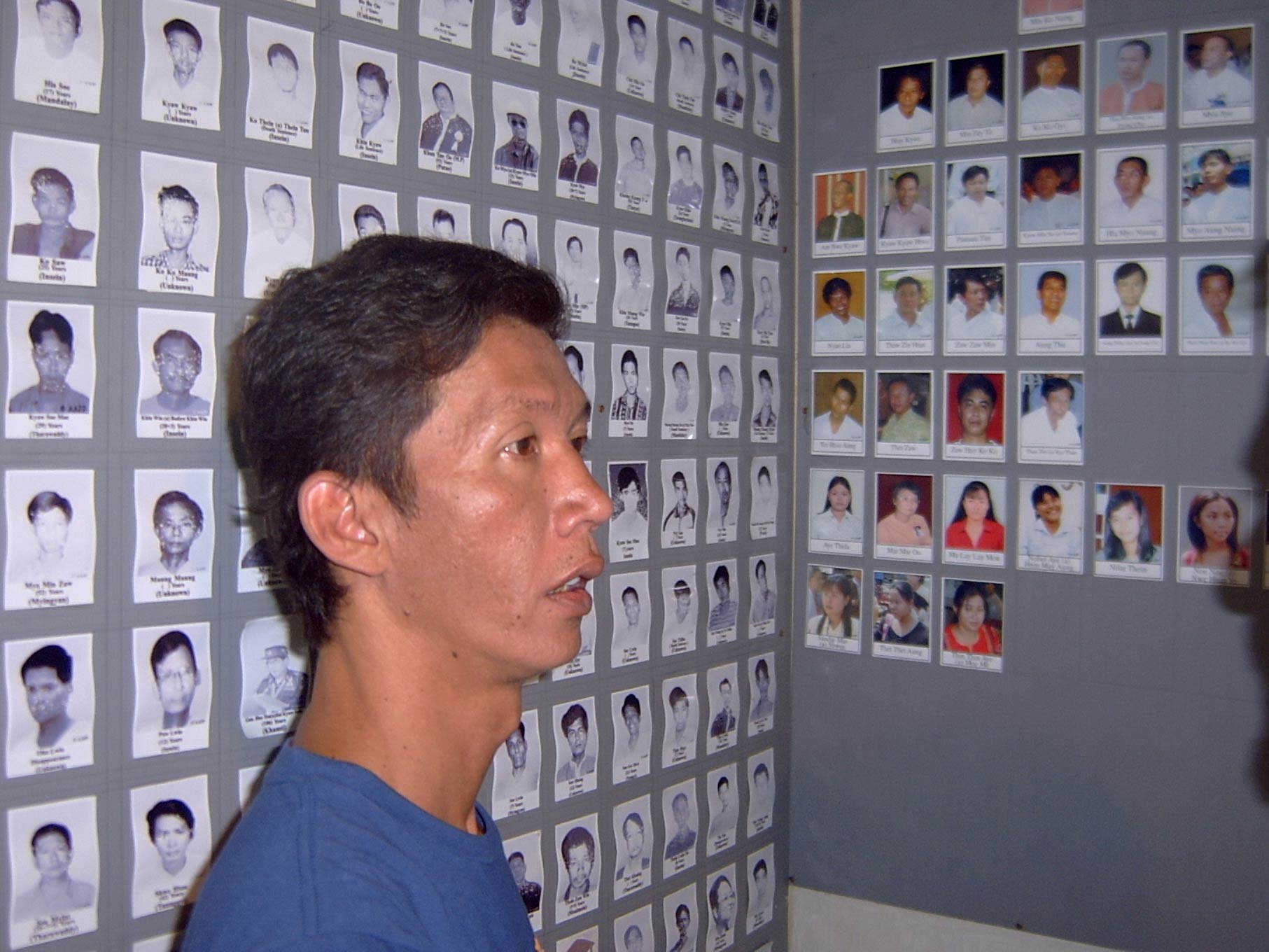Myanmar
In 2007, Myanmar was ruled by a military junta that had centralised its power since the 1960s. This government has caused a massive flight of the population to neighbouring Thailand because of the violation of basic human rights and the brutal suppression of freedom. In an effort to inform the Slovak public about these events, we have organised training sessions for Myanmar activists, film screenings and discussions. During the One World Documentary Film Festival 2007, we welcomed representatives of the Association for the Support of Political Prisoners and Altsean Burma, an organization based in Thailand. These guests took part in a discussion with the audience and a meeting at the Ministry of Foreign Affairs of the Slovak Republic, where they appealed for an active role of Slovakia in the international arena on the issue of human rights violations in Burma. In September 2007, we supported the mass protests for the democratisation of Myanmar, known as the “Saffron Revolution”. In cooperation with the Czech organisation People in Need, we also organised an internship for three human rights activists from Myanmar who were living in exile in Thailand. During their stay in Slovakia, they met with representatives of NGOs, politicians and media to learn more about the transition process and the development of civil society in Slovakia.
In 2008, we continued to inform Slovak audiences about the brutality of the military regime in Myanmar by organizing visits of Myanmar activists, film screenings and discussions. For the first time, we also held a charity sale in support of Myanmar’s political prisoners. During the biggest Slovak music festival Pohoda in Trenčín, visitors had the opportunity to buy traditional textile products made by the Myanmar refugee community in Thailand, as well as Free Burma t-shirts and badges, and thus support the families of political prisoners. This charity sale continued via the internet until the end of 2008. We donated the proceeds from the sale to the Association for the Advancement of Political Prisoners (AAPP), which in turn distributed the proceeds to the families of political prisoners in Myanmar. In October 2008, we invited two human rights activists from Myanmar and Taiwan to Slovakia. We organized meetings with NGOs for them, where they learned more about the development of civil society and the transition process.
In 2013, we focused on supporting the democratic changes in Myanmar that began in 2011 and led to the gradual easing of the military regime. We worked with the Union of Myanmar Farmers to represent the interests of farmers when their land was confiscated without proper compensation. We organised a petition for the release of imprisoned farmers and activists, which we addressed to the Government, the National Parliament and the President. We also supported the Movement for Democracy Current Forces, an initiative founded by former political prisoners. As part of our activities, we trained 120 representatives of civic initiatives and students on active citizenship, identity and culture, dialogue and conflict resolution. We collaborated with DEAR, an organization that focused on improving food security through the establishment of community-based organizations in poor areas of Shan and Karen State. We also trained 100 representatives of emerging civic initiatives on topics such as organizational development, project management, advocacy techniques, and independent election monitoring.


